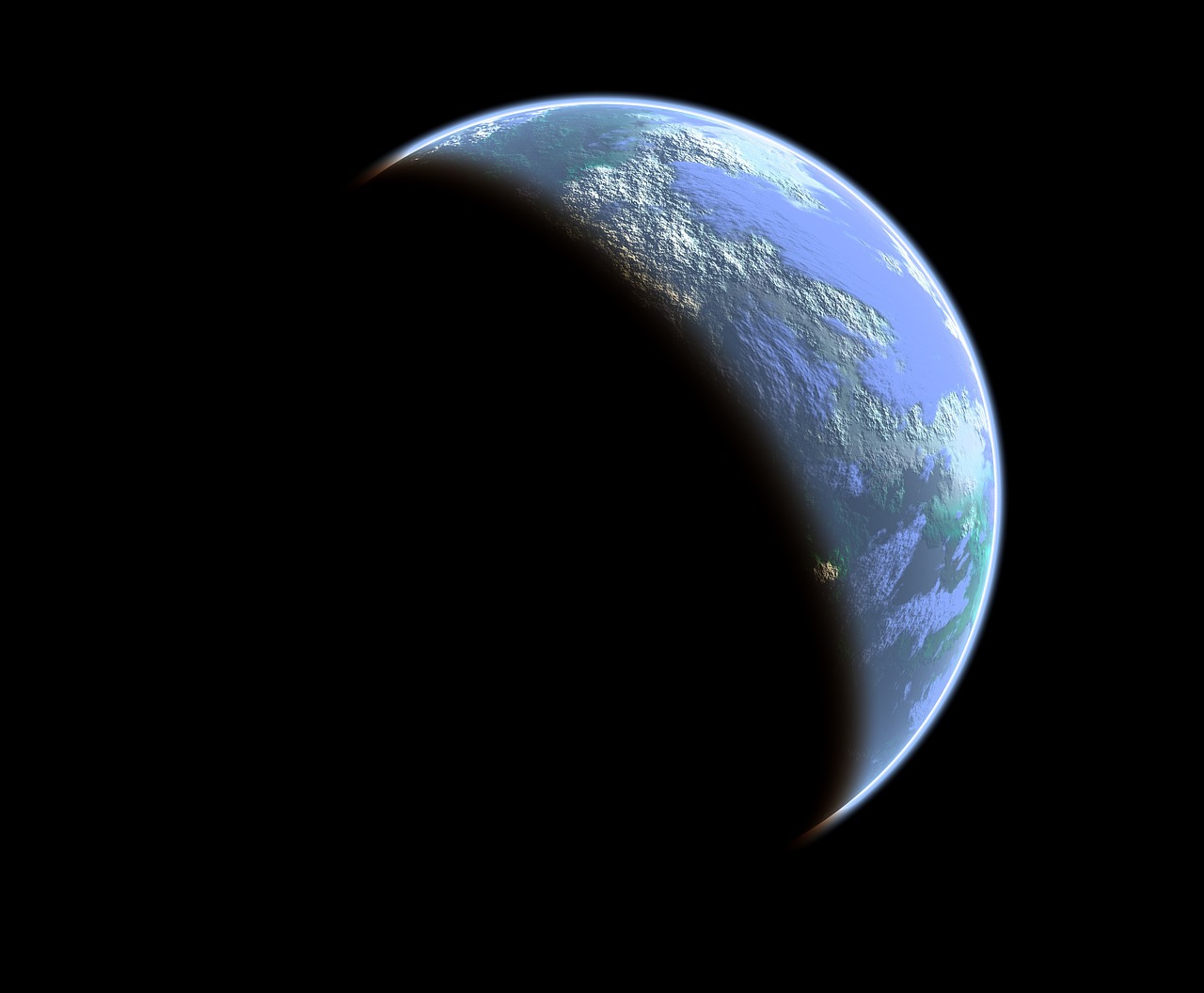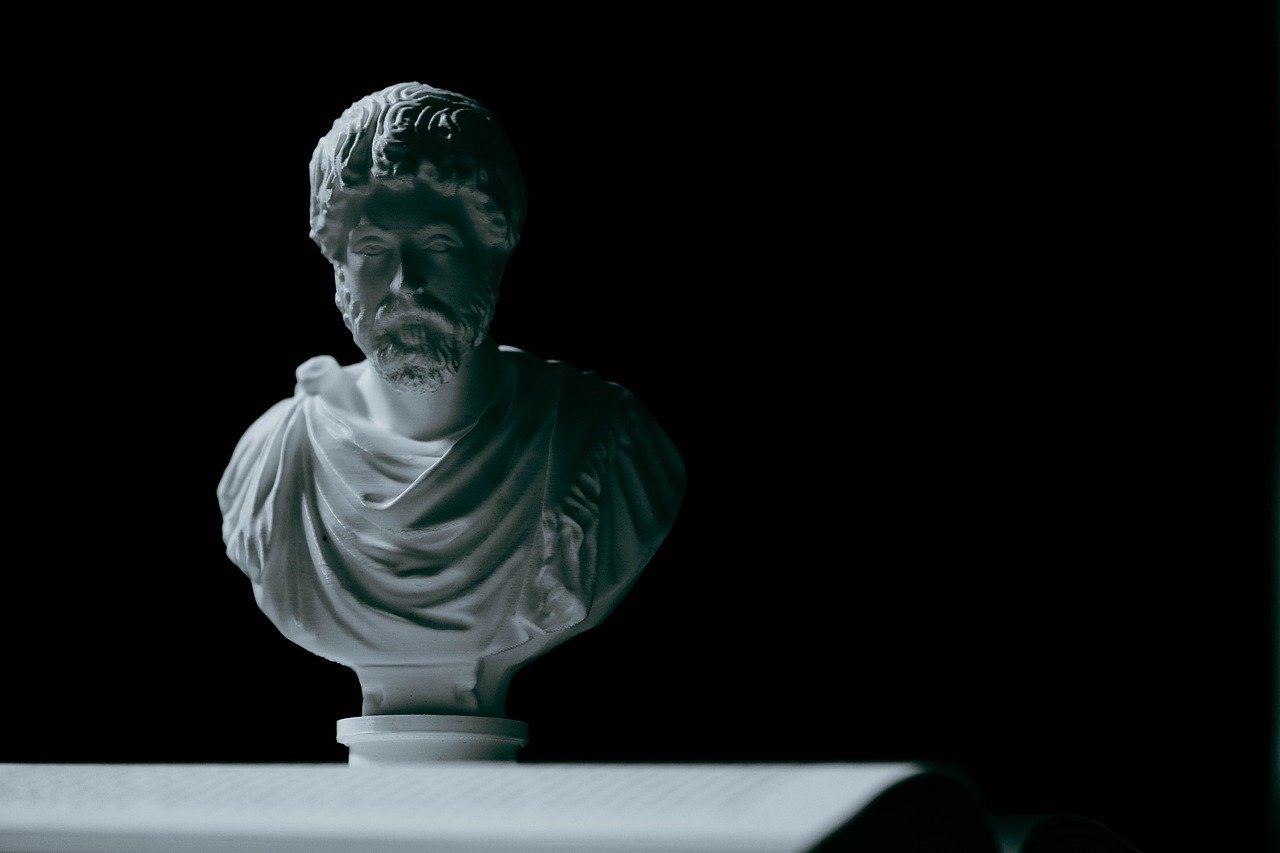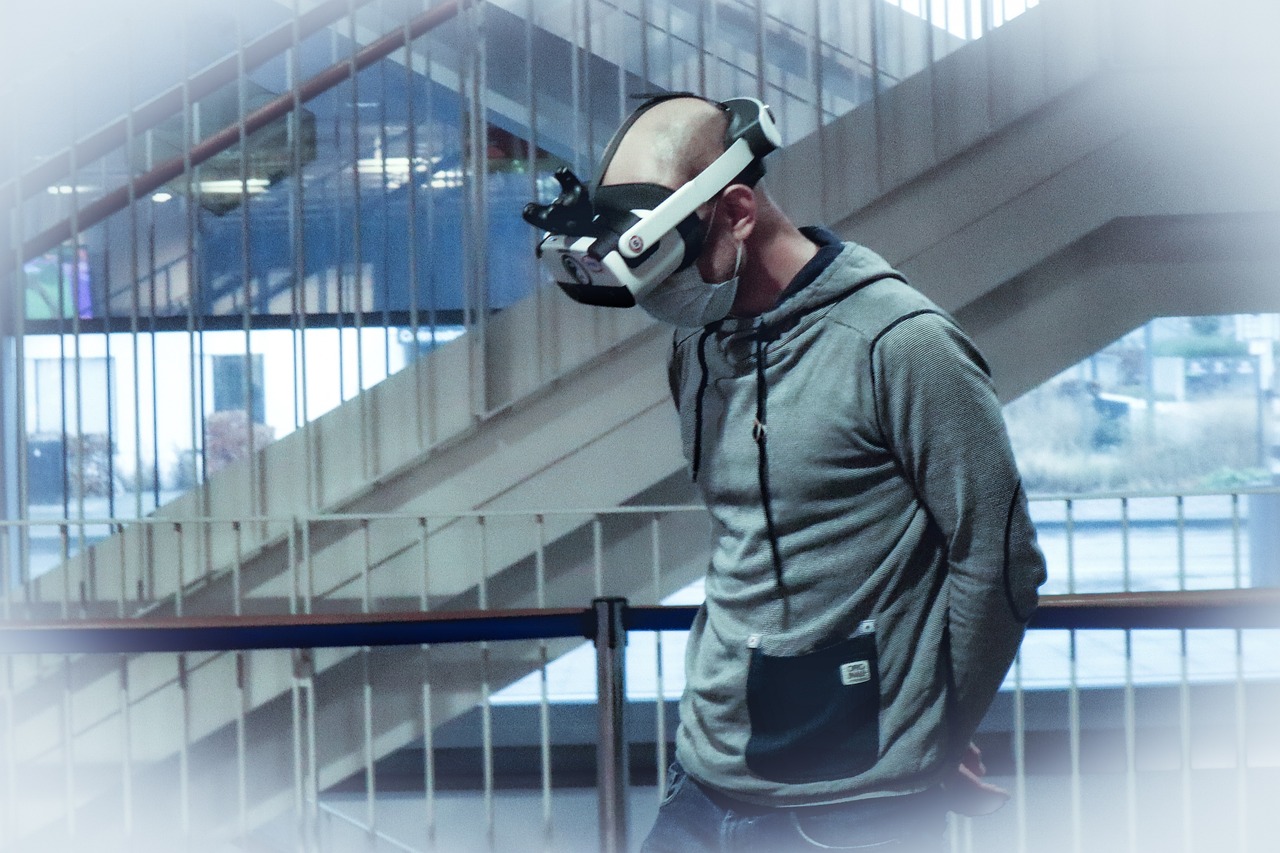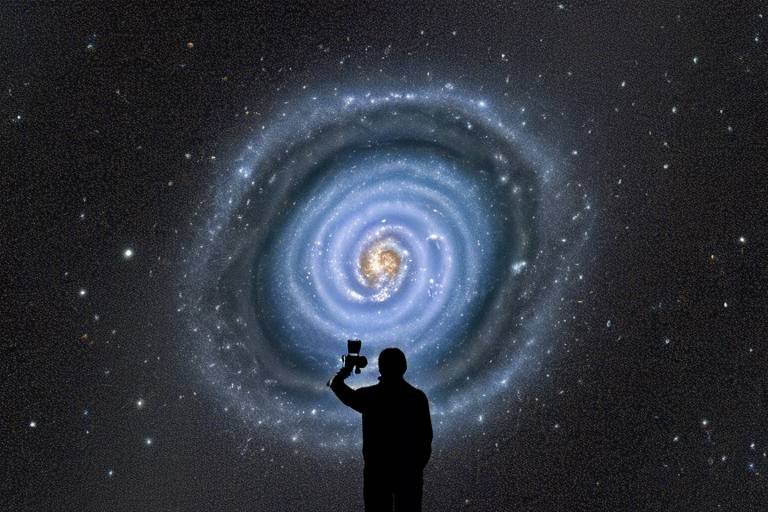Can Science and Philosophy Uncover the Truth About Reality?
The quest to understand reality is one of the most profound journeys humanity has embarked upon. It's a journey filled with questions that ignite our curiosity and challenge our perceptions. Can we truly grasp what reality is, or is it merely a construct of our minds? This article delves into the intricate relationship between science and philosophy, two disciplines that, while distinct in their methodologies, converge in their pursuit of truth. By examining their unique approaches, we aim to uncover the layers of understanding that shape our existence.
Science, with its empirical methods, seeks to explain the natural world through observation and experimentation. It builds a framework of knowledge based on measurable phenomena, allowing us to draw conclusions about the universe and our place within it. From the laws of physics to the intricacies of biology, science offers a lens through which we can interpret reality. However, the questions it raises often lead us back to philosophical inquiry. For instance, what does it mean for something to be "real"? Is reality merely what we can observe, or is there more beneath the surface?
On the other hand, philosophy provides a critical lens that challenges the assumptions made by science. It invites us to ponder the nature of existence itself. Through various philosophical perspectives—such as realism, idealism, and existentialism—we explore the depths of what reality could mean. Philosophy encourages us to question the very fabric of our understanding, pushing the boundaries of thought and inviting us to consider possibilities that science alone may not fully address.
As we navigate this intersection, we encounter the debate between empiricism and rationalism. Empiricists argue that knowledge arises from sensory experience, while rationalists assert that reason and innate ideas play a crucial role in understanding reality. This dichotomy not only enriches the discourse on reality but also exemplifies how science and philosophy can inform and complement each other. Imagine a painter trying to capture the essence of a sunset; the empirical observer focuses on the colors and shapes, while the rationalist contemplates the emotions and ideas that the sunset evokes.
Throughout history, key philosophers have shaped our understanding of these concepts. Thinkers like John Locke and David Hume emphasized the importance of experience in acquiring knowledge, while René Descartes and Immanuel Kant championed reason as the foundation of understanding. Their contributions highlight the rich tapestry of thought that informs our perception of reality, reminding us that our understanding is not just a product of observation but also of reflection and reasoning.
Moreover, the interplay between science and philosophy is not merely academic; it has real-world implications. Consider the advancements in technology and medicine that stem from scientific inquiry. These developments often prompt philosophical questions about ethics, existence, and the nature of consciousness. As we explore the universe and our own minds, we find ourselves at the crossroads of empirical evidence and philosophical thought, leading to a more nuanced understanding of reality.
However, defining reality is not without its challenges. Subjective perceptions, cultural influences, and the limitations of human cognition all complicate our attempts to reach a consensus on what constitutes reality. Each individual's experience is colored by their unique background and beliefs, making the pursuit of a universal understanding a daunting task. It's much like trying to piece together a jigsaw puzzle where each piece represents a different perspective—how do we fit them together to form a coherent picture?
As we delve deeper, we encounter the intriguing implications of quantum mechanics. This branch of physics has introduced paradoxes that challenge our traditional notions of reality, suggesting that the universe operates in ways that defy common sense. The implications of these findings have sparked rich philosophical discussions, prompting us to reevaluate our understanding of existence itself. Are we merely observers in a universe governed by probabilities, or do we have a more active role in shaping reality?
Finally, the role of consciousness adds yet another layer of complexity to our exploration. What does it mean to be aware? How does consciousness influence our perception of reality? Various theories attempt to unravel these questions, each offering unique insights into the nature of existence. As we grapple with these profound inquiries, we find ourselves not just seeking answers but also embracing the mystery of being.
- What is the main difference between science and philosophy? Science relies on empirical evidence and experimentation, while philosophy focuses on critical thinking and conceptual analysis.
- Can science and philosophy coexist? Absolutely! They complement each other by offering different perspectives on understanding reality.
- What role does consciousness play in our understanding of reality? Consciousness influences how we perceive and interpret reality, raising important questions about the nature of existence.
- How does quantum mechanics challenge traditional views of reality? Quantum mechanics introduces paradoxes that suggest reality may not be as straightforward as we once believed, prompting philosophical exploration.

The Role of Science in Understanding Reality
Science is like a detective in the vast universe of existence, tirelessly piecing together clues to uncover the mysteries of reality. Through meticulous observation and experimentation, scientists delve into the intricate workings of the natural world, seeking to explain phenomena that range from the mundane to the extraordinary. This quest for understanding is grounded in empirical methods, which prioritize evidence gathered from the senses, allowing for a more concrete grasp of what is real.
At its core, scientific inquiry is built on a foundation of hypotheses and theories. Scientists formulate hypotheses based on initial observations, which are then rigorously tested through experimentation. The outcomes of these experiments either support or refute the original hypotheses, leading to a deeper understanding of the subject matter. This iterative process not only enhances our knowledge but also refines our perception of reality itself.
Consider the way we understand gravity. Isaac Newton's laws provided a framework that explained how objects interact under the influence of gravitational force. However, it wasn’t until Albert Einstein introduced his theory of relativity that our comprehension of gravity was revolutionized. This illustrates how scientific understanding is not static; it evolves as new discoveries are made, challenging our previous notions of reality.
Moreover, science doesn't operate in a vacuum. It is deeply intertwined with technology, which amplifies our ability to observe and experiment. For instance, the invention of the telescope opened up the cosmos, revealing celestial bodies and phenomena that were once mere speculation. Similarly, advancements in quantum mechanics have brought to light the bizarre and counterintuitive aspects of reality, such as particles existing in multiple states simultaneously. These revelations not only expand our understanding of the universe but also provoke philosophical debates about the very nature of existence.
To illustrate the role of science in shaping our understanding of reality, consider the following table that summarizes key scientific discoveries and their implications:
| Discovery | Scientist(s) | Implication |
|---|---|---|
| Law of Universal Gravitation | Isaac Newton | Unified understanding of celestial and terrestrial mechanics. |
| Theory of Relativity | Albert Einstein | Revolutionized the concept of space and time. |
| Quantum Mechanics | Niels Bohr, Werner Heisenberg | Challenged classical physics and introduced uncertainty. |
In conclusion, science plays a pivotal role in our quest to understand reality. It serves as a beacon, illuminating the dark corners of ignorance and guiding us toward a more nuanced comprehension of existence. While it may not provide all the answers, it equips us with the tools to question, explore, and ultimately appreciate the complexity of the universe we inhabit.

Philosophical Perspectives on Reality
When we dive into the depths of philosophy, we uncover a treasure trove of perspectives that challenge our understanding of reality. Each philosophical viewpoint offers a unique lens through which we can interpret existence, shaping the very fabric of our beliefs and perceptions. For instance, realism posits that reality exists independently of our thoughts and perceptions, suggesting that the world is as it is, regardless of our beliefs. On the other hand, idealism argues that reality is fundamentally mental, asserting that our perceptions and consciousness are the primary components of existence. This dichotomy between realism and idealism sets the stage for a rich discussion about what reality truly entails.
Moreover, existentialism adds another layer to this complex tapestry by focusing on individual experience and the inherent meaning (or lack thereof) of life. Existentialists like Jean-Paul Sartre and Søren Kierkegaard emphasize the importance of personal choice and responsibility, suggesting that we create our own realities through our actions and decisions. This perspective raises intriguing questions: Is reality a fixed entity, or is it something we actively shape through our experiences? The existentialist view encourages us to reflect on our existence and the choices we make, ultimately leading us to a more profound understanding of what it means to be alive.
In addition to these primary schools of thought, we must consider the interplay between empiricism and rationalism. Empiricism, with its emphasis on sensory experience, suggests that knowledge is derived from what we can observe and measure. Think of it as a scientist peering through a microscope, gathering data to understand the microscopic world. In contrast, rationalism champions the role of reason and innate knowledge, akin to a mathematician solving a complex equation based on established principles. These two approaches often clash yet complement each other, enriching our philosophical discourse on reality.
This tension between empiricism and rationalism leads us to explore the contributions of key philosophers in each camp. For example, John Locke, a prominent empiricist, argued that the mind is a blank slate at birth, and all knowledge comes from experience. He famously stated, "What we know is based on what we have seen, heard, and felt." In contrast, René Descartes, a foundational rationalist, asserted that reason is the path to understanding reality. His famous declaration, "I think, therefore I am," emphasizes the importance of thought as the basis for existence.
As we navigate these philosophical waters, it becomes clear that the dialogue between science and philosophy is not merely academic but profoundly relevant to our everyday lives. The questions posed by these schools of thought resonate with our personal experiences, challenging us to ponder the nature of our reality. Are we mere observers, or do we play an active role in shaping our existence? The exploration of these philosophical perspectives invites us to engage more deeply with the world around us, ultimately leading to a richer understanding of reality itself.

Empiricism vs. Rationalism
When diving into the philosophical waters of reality, two major currents emerge: empiricism and rationalism. These schools of thought represent fundamentally different approaches to knowledge and understanding. Empiricism, championed by thinkers like John Locke and David Hume, asserts that knowledge primarily comes from sensory experience. Imagine standing on a beach, feeling the cool ocean breeze against your skin; that tangible experience is what empiricists would argue forms the basis of our understanding of the world. They believe that observation and experimentation are the cornerstones of knowledge, much like a scientist meticulously collecting data to support a hypothesis.
On the flip side, we have rationalism, which places a premium on reason and innate ideas. Think of rationalists like René Descartes and Immanuel Kant as intellectual architects, constructing knowledge from the blueprints of logic and reasoning. They argue that certain truths exist independently of sensory experience. For instance, the concept of mathematical truths, such as 2 + 2 4, holds regardless of whether we physically count objects. This leads us to ask: can we really trust our senses, or are they merely a veil obscuring the true nature of reality?
The contrast between these two perspectives can be likened to looking at the world through a pair of different lenses. Empiricists might say that reality is like a vibrant painting, where every brushstroke is an experience waiting to be observed. In contrast, rationalists would argue that reality is more like a blueprint of a building, where the underlying structure is revealed through reason and analysis. Both perspectives provide valuable insights, yet they also raise intriguing questions about the nature of knowledge itself.
To further illustrate the differences between empiricism and rationalism, consider the following table:
| Aspect | Empiricism | Rationalism |
|---|---|---|
| Source of Knowledge | Sensory Experience | Reason and Logic |
| Key Thinkers | John Locke, David Hume | René Descartes, Immanuel Kant |
| Example of Knowledge | Scientific Observations | Mathematical Truths |
| View on Reality | Reality is constructed from experiences | Reality is understood through innate ideas |
In conclusion, both empiricism and rationalism offer unique lenses through which we can explore and understand reality. While empiricism grounds us in the tangible world of experience, rationalism elevates us to the abstract realm of reason. The interplay between these two philosophies not only enriches our understanding of existence but also encourages us to question the very nature of knowledge itself. So, which lens do you find more compelling? Does your understanding of reality lean more towards experience or reason?
- What is empiricism? Empiricism is the philosophical viewpoint that knowledge comes primarily from sensory experience.
- Who are key figures in rationalism? Key figures include René Descartes and Immanuel Kant, who emphasized the role of reason in acquiring knowledge.
- How do empiricism and rationalism differ? Empiricism relies on observation and experience, while rationalism prioritizes reason and innate ideas.
- Can both perspectives coexist? Yes, many believe that a synthesis of both empiricism and rationalism can lead to a more comprehensive understanding of reality.

Key Philosophers in Empiricism
When we talk about empiricism, we can't overlook the pivotal contributions of several key philosophers who have shaped this school of thought. At its core, empiricism is the idea that knowledge comes primarily from sensory experience. This perspective invites us to question: How much of what we know is derived from what we see, hear, and touch? It's a fascinating inquiry that leads us to some heavyweights in the philosophical arena.
One of the most influential figures in empiricism is John Locke, who famously posited that the mind at birth is a tabula rasa or blank slate. According to Locke, all knowledge is built through experience, suggesting that our understanding of reality is constructed through the interactions we have with the world around us. Imagine starting your life with a completely empty notebook; every experience you encounter writes a new page. That's how Locke viewed human understanding.
Another monumental thinker in the realm of empiricism is David Hume. Hume took Locke's ideas further by arguing that our beliefs and knowledge are not only shaped by experience but that they are also deeply intertwined with human emotions and instincts. He famously questioned the notion of causality, suggesting that we can never truly know if one event causes another; we only observe that they happen in succession. This notion can be mind-boggling—what if everything we think we know about cause and effect is merely a habit of thought?
| Philosopher | Key Contribution |
|---|---|
| John Locke | Proposed the mind as a blank slate, emphasizing knowledge through experience. |
| David Hume | Challenged causality, highlighting the role of emotions in shaping knowledge. |
Locke and Hume laid the groundwork for modern empiricism, but they weren't alone. George Berkeley also made significant contributions by proposing the idea that existence is tied to perception. He famously stated, "To be is to be perceived," suggesting that objects only exist if they are observed. This radical idea forces us to reconsider the very nature of reality—if no one is around to see a tree fall in the forest, does it make a sound? Berkeley's thoughts challenge us to think about the relationship between perception and existence in a profound way.
In summary, the contributions of these key philosophers in empiricism serve as a reminder of the intricate tapestry of knowledge. They encourage us to reflect on how our experiences shape our understanding of reality. Are we merely passive observers, or do we actively construct the reality we perceive? As we delve deeper into the realms of science and philosophy, these questions become ever more relevant.
- What is empiricism? Empiricism is a philosophical stance that emphasizes knowledge gained through sensory experience.
- Who are the key philosophers associated with empiricism? Notable philosophers include John Locke, David Hume, and George Berkeley.
- How does empiricism differ from rationalism? While empiricism focuses on sensory experience, rationalism emphasizes reason and innate knowledge.

Key Philosophers in Rationalism
Rationalism, a philosophical doctrine asserting that reason is the chief source of knowledge, has been shaped by several influential thinkers throughout history. At its core, rationalism posits that certain truths exist independently of sensory experience, and these truths can be discovered through the application of reason. Among the most prominent rationalist philosophers are René Descartes and Immanuel Kant, who have left an indelible mark on our understanding of reality and knowledge.
René Descartes, often referred to as the father of modern philosophy, famously declared, "Cogito, ergo sum" (I think, therefore I am). This statement encapsulates his belief that the act of thinking is proof of one's existence and a fundamental starting point for all knowledge. Descartes argued that the mind is distinct from the body, leading to the development of dualism, which posits that the mental and physical realms are separate. His methodological skepticism, where he doubted everything that could possibly be doubted, aimed to arrive at certain knowledge. Through this process, he sought to establish a firm foundation for the sciences, which he believed should be built upon clear and distinct ideas derived from rational thought.
Following Descartes, Immanuel Kant further advanced the rationalist perspective by proposing a synthesis of rationalism and empiricism. In his critical philosophy, particularly in works like Critique of Pure Reason, Kant argued that while our knowledge begins with experience, it is shaped by the innate categories of the mind. He believed that certain concepts, such as space and time, are not derived from experience but are instead preconditions for experiencing the world. This revolutionary idea reshaped the landscape of philosophy, suggesting that our understanding of reality is not merely a passive reflection of the external world but is actively constructed by our cognitive faculties.
Both Descartes and Kant significantly influenced the rationalist tradition, but they also opened up discussions that would lead to various critiques and developments in philosophy. For instance, while Descartes emphasized the primacy of reason, Kant introduced the notion of transcendental idealism, suggesting that reality as we know it is shaped by both our sensory experiences and the inherent structures of our mind. This interplay between reason and experience has led to rich dialogues about the nature of knowledge and existence.
In addition to Descartes and Kant, other notable rationalists include Baruch Spinoza and Gottfried Wilhelm Leibniz. Spinoza argued for a monistic view of reality, where God and nature are seen as two aspects of the same substance, emphasizing the importance of understanding the universe through reason. Leibniz, on the other hand, introduced the concept of monads, indivisible units of reality that reflect the universe from their own perspectives, further complicating our understanding of knowledge and existence.
In summary, the contributions of these key philosophers in rationalism have shaped our understanding of reality as a complex interplay between reason and experience. Their ideas continue to provoke thought and inspire inquiry into the fundamental nature of existence. As we delve deeper into the realms of science and philosophy, the insights from rationalist thinkers remain pivotal in our quest to uncover the truth about reality.
- What is rationalism? Rationalism is a philosophical belief that reason is the primary source of knowledge, emphasizing that certain truths exist independently of sensory experience.
- Who are the key philosophers associated with rationalism? Key philosophers include René Descartes, Immanuel Kant, Baruch Spinoza, and Gottfried Wilhelm Leibniz.
- How does rationalism differ from empiricism? While rationalism emphasizes reason as the source of knowledge, empiricism prioritizes sensory experience. Both approaches contribute uniquely to our understanding of reality.
- What is the significance of Descartes' phrase "I think, therefore I am"? This phrase signifies that the act of thinking is proof of one's existence and serves as a foundational point for establishing knowledge.

Interplay Between Science and Philosophy
The relationship between science and philosophy is like a dance, where each partner brings unique strengths to the floor, creating a more profound understanding of reality. Science, with its rigorous methodologies and empirical approaches, seeks to uncover the laws governing the natural world. Philosophy, on the other hand, provides a framework for questioning the very foundations of those scientific discoveries. Together, they form a complementary relationship that enhances our grasp of existence.
At its core, the interplay between science and philosophy revolves around the quest for knowledge. Scientists often rely on philosophical concepts to frame their hypotheses and interpret their findings. For instance, when scientists propose a new theory, they are not just presenting raw data; they are also engaging in a philosophical dialogue about what constitutes evidence and how we should understand causality. This is where the philosophical lens comes into play, questioning the assumptions that underpin scientific inquiry.
Moreover, philosophy can challenge scientific paradigms. Take, for example, the implications of quantum mechanics. The strange behaviors observed at the quantum level have prompted philosophers to reconsider long-held notions of determinism and causality. This is a prime example of how scientific advancements can lead to philosophical reevaluations, sparking debates that push both fields forward. In this way, science and philosophy do not exist in isolation; rather, they influence and refine each other.
Here’s a brief overview of how these two disciplines interact:
| Aspect | Science | Philosophy |
|---|---|---|
| Methodology | Empirical, based on observation and experimentation | Analytical, focusing on critical thinking and argumentation |
| Focus | Understanding the physical universe | Exploring fundamental questions about existence and knowledge |
| Outcome | Theories and laws that explain natural phenomena | Conceptual frameworks that guide our understanding of reality |
It's essential to recognize that the dialogue between science and philosophy is not merely academic; it has real-world implications. For instance, ethical considerations in scientific research, such as the implications of genetic engineering or artificial intelligence, require a philosophical approach to navigate the moral landscape. Without philosophical inquiry, scientific advancements could lead to unintended consequences that society may not be prepared to address.
In conclusion, the interplay between science and philosophy is a dynamic and evolving relationship that enriches our understanding of reality. As we continue to explore the mysteries of existence, it becomes increasingly clear that neither discipline can provide a complete picture on its own. Instead, they must work together, challenging and supporting each other in the pursuit of truth.
- How do science and philosophy differ in their approaches? Science relies on empirical evidence and experimentation, while philosophy engages in critical thinking and abstract reasoning.
- Can philosophy influence scientific research? Yes, philosophical questions can shape the direction of scientific inquiry and ethical considerations in research.
- Are there areas where science and philosophy overlap? Absolutely! Fields like the philosophy of science explore the foundational questions about scientific methodologies and practices.

Challenges in Defining Reality
Defining reality is no easy feat; it's like trying to catch smoke with your bare hands. Each of us experiences the world through our own unique lens, shaped by personal experiences, cultural backgrounds, and even the era we live in. This subjectivity can lead to vastly different interpretations of what reality truly is. For instance, consider how two people can witness the same event but walk away with completely different stories. It's a classic case of perception playing tricks on us, making it clear that reality is not just a simple, universally accepted concept.
Moreover, the complexities of language add another layer of difficulty. Words are merely symbols we use to describe our experiences, but they often fall short of capturing the full essence of those experiences. When we try to define reality, we rely on language that can be ambiguous and open to interpretation. This raises the question: if we can't even agree on the words we use to describe reality, how can we hope to define it?
Furthermore, cultural influences play a significant role in shaping our understanding of reality. Different cultures have unique beliefs, traditions, and worldviews that inform their perceptions of existence. For example, in some Eastern philosophies, reality is seen as a fluid, interconnected web of existence, while Western thought often emphasizes individualism and materialism. This divergence complicates the quest for a singular definition of reality, as what is deemed "real" can vary dramatically from one culture to another.
One of the most intriguing challenges comes from the realm of science, particularly with the advent of quantum mechanics. The bizarre findings of quantum physics—such as particles existing in multiple states at once—force us to reconsider our traditional notions of reality. Are we living in a deterministic universe, or is reality more akin to a cosmic lottery where chance plays a crucial role? These scientific revelations challenge our philosophical frameworks, leading to heated debates about the nature of existence.
In addition to scientific challenges, we must also grapple with the role of consciousness in defining reality. What does it mean to be aware? How does our conscious experience shape our understanding of the world around us? Various theories of consciousness, such as dualism and materialism, offer differing perspectives on this issue. For instance, dualists argue that consciousness exists separately from the physical world, while materialists contend that everything, including consciousness, can be explained through physical processes. This ongoing dialogue raises profound questions about the very fabric of reality and our place within it.
Ultimately, the challenge of defining reality is a multifaceted puzzle that intertwines science, philosophy, culture, and consciousness. As we continue to explore these dimensions, we must remain open to the idea that reality may not be a singular truth but rather a tapestry woven from countless threads of perception and experience. So, as we ponder the nature of existence, we might just find that the journey to understanding reality is as significant as the destination itself.
- What is reality? Reality is the state of things as they actually exist, which can differ based on individual perception and cultural influences.
- Why is it difficult to define reality? The subjectivity of human experience, the ambiguity of language, and differing cultural perspectives complicate the definition of reality.
- How does science impact our understanding of reality? Scientific discoveries, especially in fields like quantum mechanics, challenge traditional notions of existence and prompt philosophical reevaluations.
- What role does consciousness play in defining reality? Consciousness shapes our perceptions and experiences, leading to diverse interpretations of what is real.

The Influence of Quantum Mechanics
Quantum mechanics is like the wild child of physics, throwing traditional notions of reality into a dizzying whirlwind. Imagine trying to grasp a slippery fish; just when you think you've got it, it wriggles free and changes shape! This is the essence of quantum mechanics—it challenges our understanding of existence at the most fundamental level. At its core, quantum mechanics reveals that particles can exist in multiple states at once, a phenomenon known as superposition. This idea alone turns our everyday experiences on their head, suggesting that reality is not as fixed as we perceive it to be.
One of the most mind-bending implications of quantum mechanics is the concept of entanglement. When particles become entangled, the state of one particle instantly influences the state of another, regardless of the distance separating them. This phenomenon has led to the famous question: Can information travel faster than the speed of light? Such questions push the boundaries of our understanding and challenge the very fabric of reality itself.
To illustrate the impact of quantum mechanics on our philosophical discussions about reality, let's consider a few key points:
- Observer Effect: The act of observation can alter the state of a quantum system. This raises questions about the role of consciousness in shaping reality. Are we mere observers, or do we actively participate in the creation of the universe?
- Wave-Particle Duality: Particles like electrons exhibit both wave-like and particle-like properties. This duality suggests that reality may be more complex than our binary understanding of matter and energy.
- Reality as Probability: In quantum mechanics, the outcomes of events are often described in terms of probabilities rather than certainties. This leads to the intriguing notion that reality may be inherently uncertain.
The implications of these concepts extend beyond the realm of physics and seep into our philosophical discussions about existence. If reality can be influenced by observation, what does that mean for our understanding of truth? Are we constructing our own realities through perception? These questions echo through the halls of both scientific laboratories and philosophical debates, creating a rich tapestry of inquiry that challenges our assumptions.
Moreover, quantum mechanics has sparked a renaissance in the philosophy of science, leading to new interpretations and theories that attempt to reconcile the bizarre behaviors of particles with our macroscopic experiences. Think of it as trying to fit a square peg into a round hole; sometimes, it takes a bit of creativity and rethinking to make sense of the fit. Theories such as the Many-Worlds Interpretation propose that every quantum event spawns a branching of realities, each existing in parallel. This notion opens up a Pandora's box of possibilities, forcing us to reconsider the very nature of existence.
In summary, quantum mechanics not only reshapes our understanding of the physical universe but also compels us to confront profound philosophical questions about the nature of reality itself. As we delve deeper into the quantum realm, we find ourselves at the intersection of science and philosophy, where the lines between fact and perception blur, urging us to expand our understanding of what it means to exist.
- What is quantum mechanics? Quantum mechanics is a fundamental theory in physics that describes the physical properties of nature at the scale of atoms and subatomic particles.
- How does quantum mechanics challenge our understanding of reality? It introduces concepts such as superposition and entanglement, suggesting that reality is not as fixed and deterministic as once thought.
- What is the observer effect in quantum mechanics? The observer effect is the phenomenon where the act of measuring or observing a quantum system can change its state.
- What are some philosophical implications of quantum mechanics? Quantum mechanics raises questions about the nature of reality, the role of consciousness, and whether our observations influence the universe.

The Role of Consciousness
Consciousness is a fascinating and complex phenomenon that has puzzled thinkers for centuries. It is often described as the state of being aware of and able to think about one's own existence, sensations, thoughts, and surroundings. But what exactly does it mean to be conscious? Is consciousness merely a byproduct of brain activity, or does it hold a deeper significance in understanding reality? These questions have led to a myriad of theories and debates, making consciousness a vital area of exploration in both science and philosophy.
One of the most intriguing aspects of consciousness is its subjective nature. Each person's experience of reality is filtered through their unique consciousness, which can lead to vastly different interpretations of the same event. For instance, consider how two people might perceive a sunset: one may feel a profound sense of peace and connection to nature, while another might feel a tinge of sadness or nostalgia. This subjectivity raises critical questions about the objective nature of reality. If our perceptions are so varied, can we truly claim to understand reality as it is, or are we merely seeing reflections of our own consciousness?
Philosophers have long debated the implications of consciousness on our understanding of reality. Some, like René Descartes, famously declared, "I think, therefore I am," suggesting that the very act of thinking is proof of existence. This perspective emphasizes the role of consciousness as foundational to our understanding of reality. However, others, such as David Hume, argued that our knowledge is limited to our experiences and perceptions, which are inherently subjective and unreliable. Thus, the interplay between consciousness and reality becomes a dance of perception, interpretation, and understanding.
In recent years, advancements in neuroscience have provided new insights into the workings of consciousness. Studies have shown that certain brain processes correlate with conscious experience, leading some scientists to propose that consciousness arises from complex neural networks. However, this raises further questions: If consciousness is purely a product of brain activity, what happens to our understanding of free will, personal identity, and moral responsibility? Are we merely biological machines, or is there something more profound at play?
Moreover, the role of consciousness in shaping our reality can be illustrated through various theories, including:
- Phenomenology: This philosophical approach emphasizes the study of conscious experience from the first-person perspective, aiming to understand how individuals perceive and interpret their realities.
- Panpsychism: This theory posits that consciousness is a fundamental aspect of all matter, suggesting that even elementary particles possess some form of awareness, thus intertwining consciousness with the fabric of reality itself.
- Integrated Information Theory (IIT): This scientific theory proposes that consciousness corresponds to the level of information integration within a system, offering a quantitative measure of consciousness that could bridge the gap between subjective experience and objective reality.
As we delve deeper into the relationship between consciousness and reality, we must also consider the implications of altered states of consciousness, such as those experienced during meditation, dreams, or psychedelic experiences. These states can provide profound insights into the nature of existence and challenge our conventional understanding of reality. They often lead individuals to report feelings of unity, interconnectedness, and even transcendence, suggesting that consciousness may serve as a gateway to deeper truths about our existence.
In conclusion, the role of consciousness in understanding reality cannot be overstated. It serves as both a lens through which we perceive the world and a complex phenomenon that shapes our very understanding of existence. As we continue to explore the depths of consciousness, we may uncover new dimensions of reality that challenge our fundamental beliefs and expand our horizons. The journey into the nature of consciousness is not just an academic pursuit; it is a deeply personal exploration that resonates with the core of what it means to be human.
- What is consciousness? Consciousness refers to the state of being aware of and able to think about one's own existence, thoughts, and surroundings.
- How does consciousness affect our perception of reality? Consciousness shapes our individual experiences and interpretations of reality, leading to subjective perceptions that can differ greatly from person to person.
- Can consciousness exist independently of the brain? This is a debated question; some argue that consciousness is a product of brain activity, while others believe it may have a more profound existence beyond physical processes.
- What are some theories of consciousness? Key theories include phenomenology, panpsychism, and integrated information theory, each offering unique perspectives on the nature of consciousness and its relationship to reality.
Frequently Asked Questions
- What is the relationship between science and philosophy in understanding reality?
Science and philosophy are like two sides of the same coin when it comes to exploring reality. Science uses empirical methods—think observation and experimentation—to uncover facts about the natural world. Philosophy, on the other hand, dives deep into the underlying concepts and questions that science might not fully address, such as the nature of existence and perception. Together, they create a more comprehensive understanding of reality.
- How do empiricism and rationalism differ in their approach to knowledge?
Great question! Empiricism is all about the senses—it's like saying, "I believe it when I see it." Think of it as gathering data from the world around us through experience. Rationalism, however, puts reason in the driver's seat. It argues that we can arrive at truths through logical reasoning, even without sensory experience. Both approaches contribute to our understanding of reality but in very different ways.
- Can quantum mechanics change our perception of reality?
Absolutely! Quantum mechanics is like the wild card of physics. It introduces concepts that challenge our everyday understanding of reality, such as particles being in multiple states at once. These paradoxes not only shake up scientific views but also spill over into philosophical discussions, forcing us to reconsider what we think we know about existence.
- What role does consciousness play in defining reality?
Consciousness is a game-changer in the quest to define reality. It raises questions like, "Is reality what we perceive, or is there more?" Different theories of consciousness suggest that our awareness shapes our experience of reality, making it a complex interplay between the mind and the external world. It's like trying to solve a puzzle where the pieces keep changing shape!
- Why is it challenging to reach a consensus on what constitutes reality?
Defining reality is tricky because it's influenced by personal perceptions, cultural backgrounds, and even emotional states. What one person sees as real might be completely different for someone else. This subjectivity makes it difficult to pin down a universal definition of reality. It's like trying to describe a color to someone who has never seen it!



















